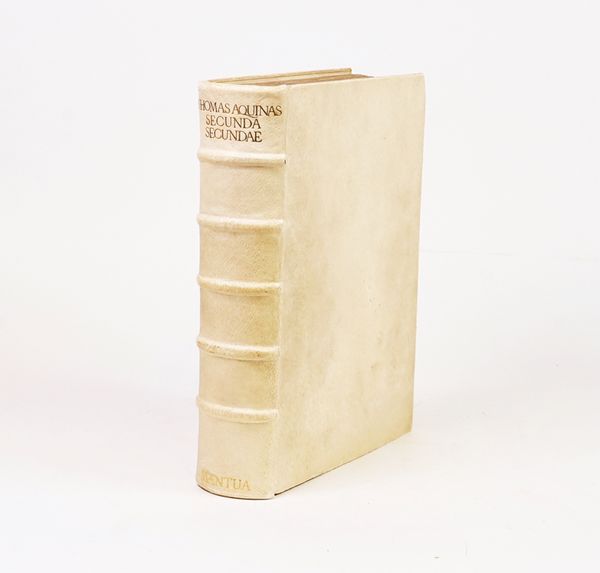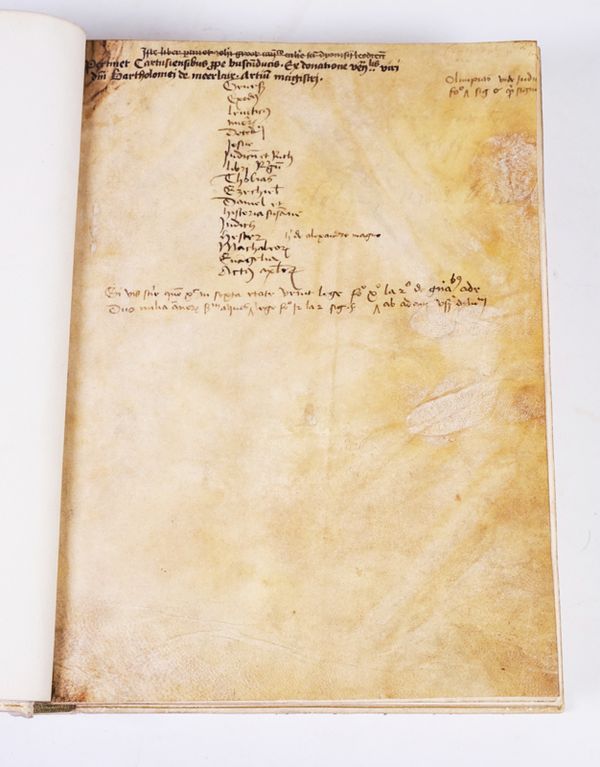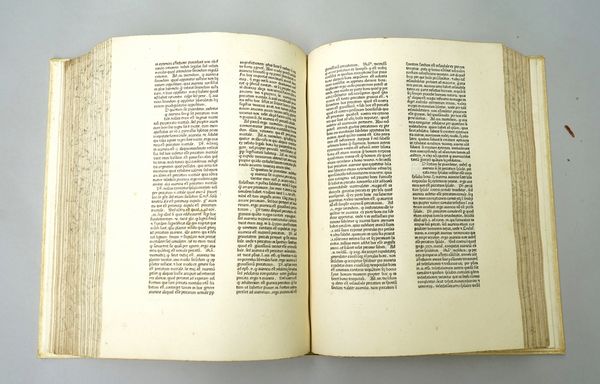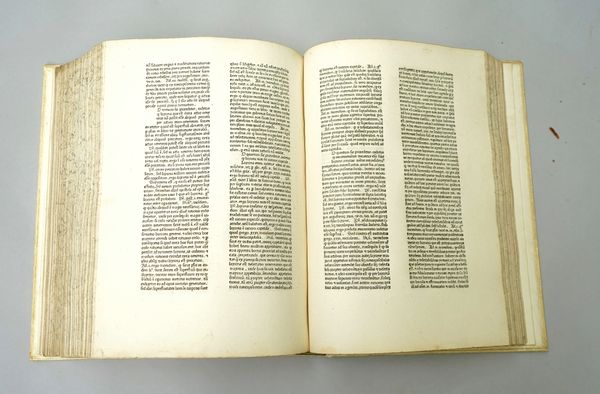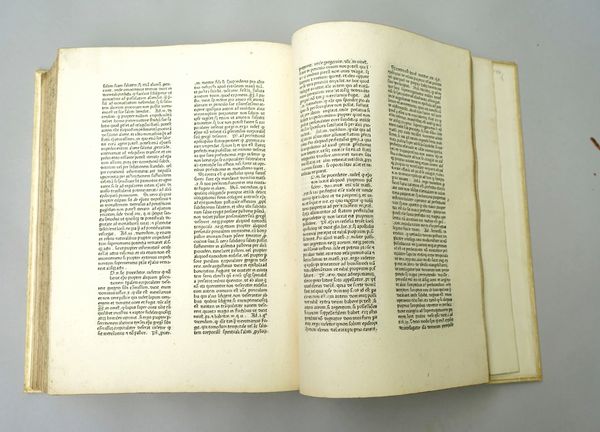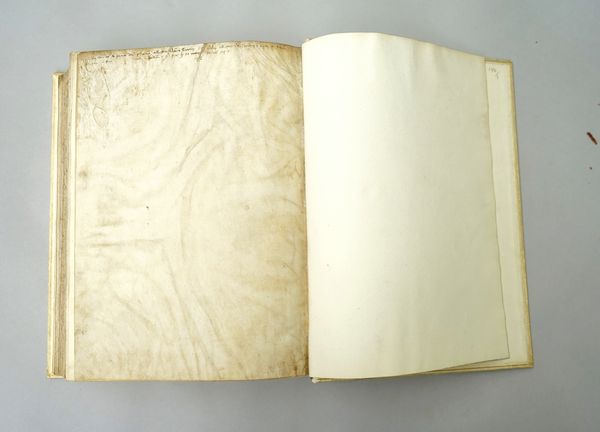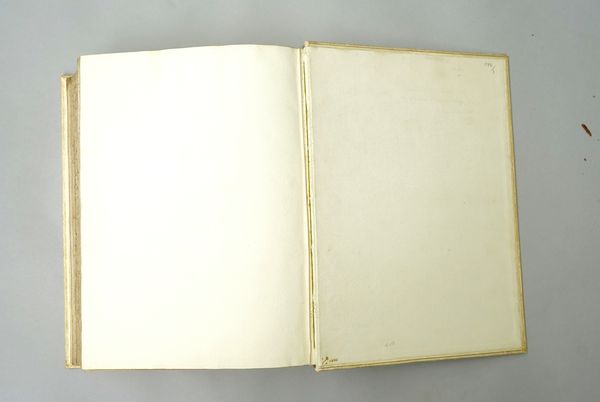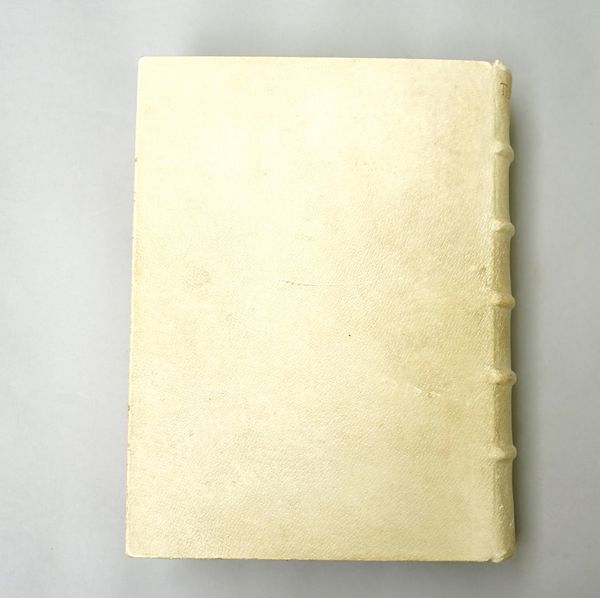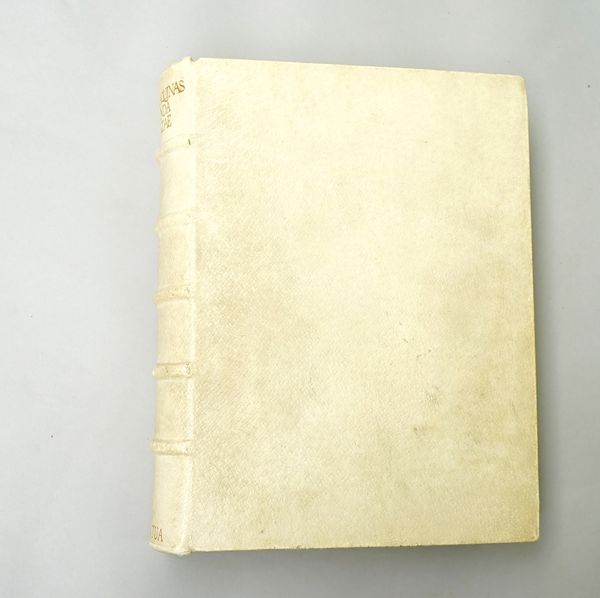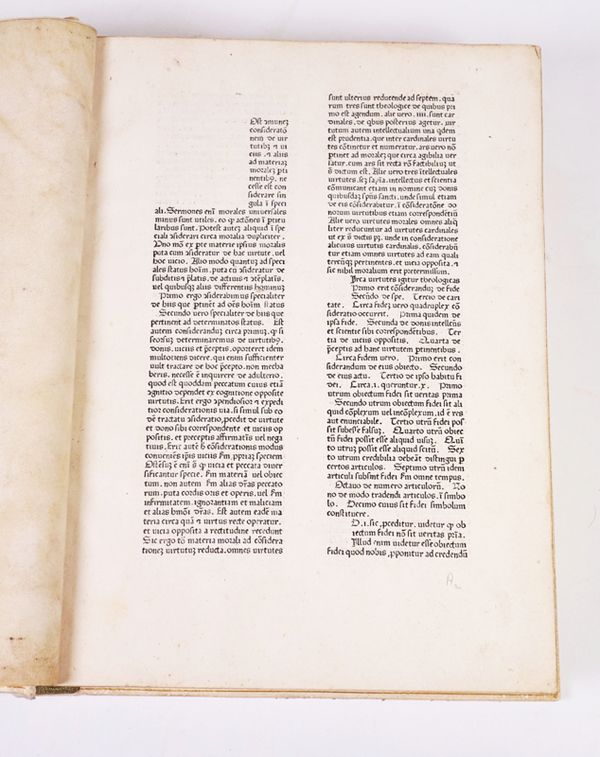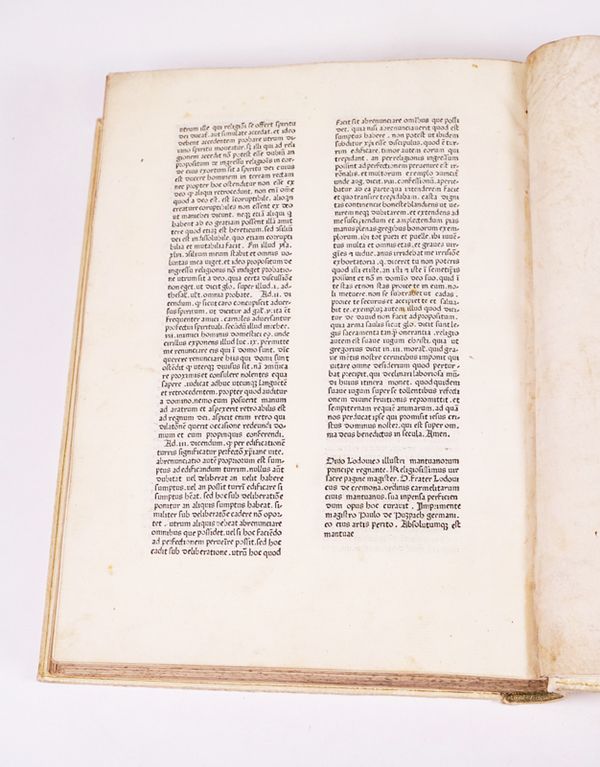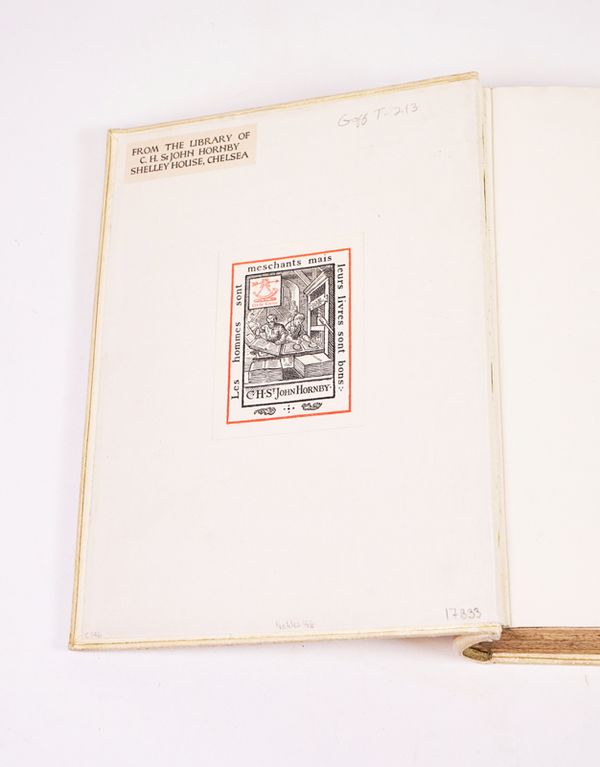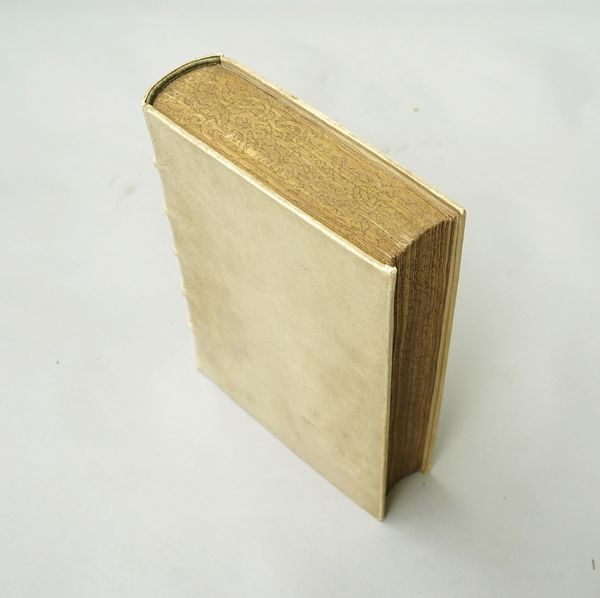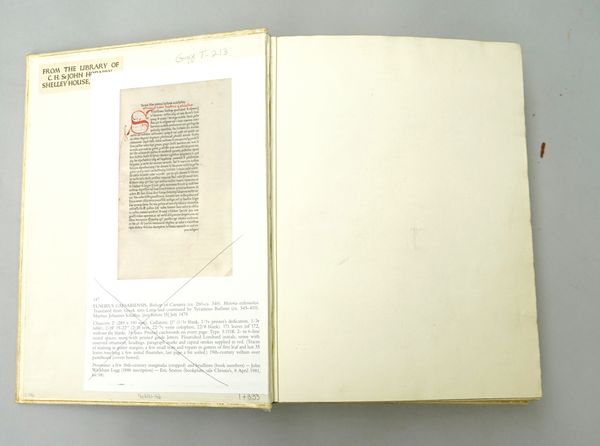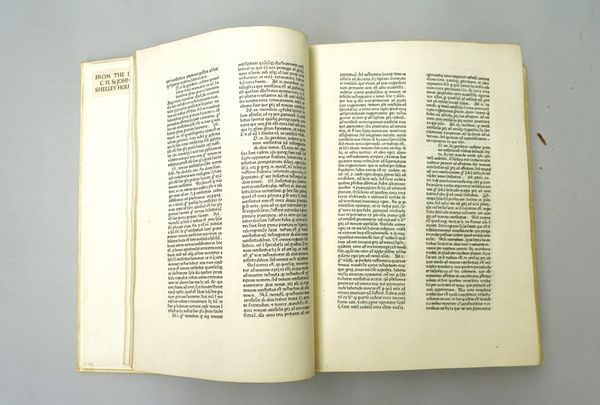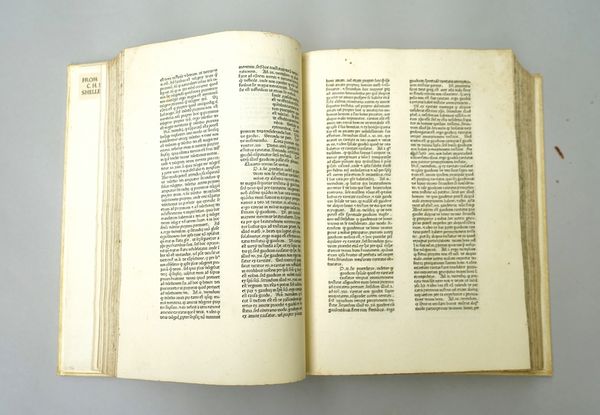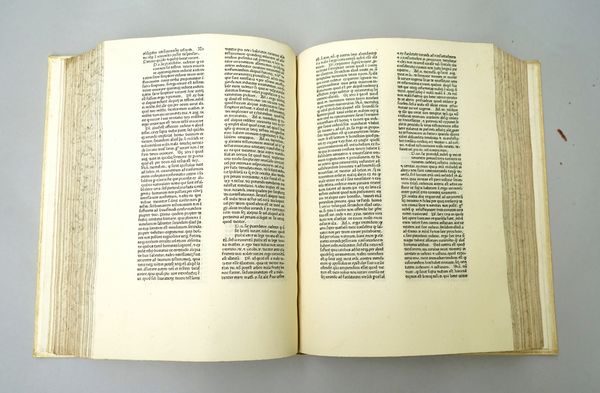THOMAS AQUINAS (Saint, c. 1225-74). Summa theologiae.
| Estimate: | £2,000 - £3,000 |
| Hammer price: | £7,000 |
THOMAS AQUINAS (Saint, c. 1225-74). Summa theologiae. Pars secunda: secunda pars, edited by Ludovicus de Cremona. Mantua: Paulus de Butzbach, [not after 1474]. Folio (276 x 204mm). 53 lines, printed in double column, type 1:75G, 3- to 11-line initial spaces, some contemporary manuscript chapter numbers at upper margins, 386 leaves (of 396, without the 2 blanks and the final quire [see note], a single wormhole in quires 7-8, marginal wormhole in last 4 leaves, some very light mainly marginal staining). Full modern pigskin by Katherine Adams [for C. H. St John Hornby], with her monogram stamp dated 1905, spine lettered in gilt and with 5 raised bands, gilt and gauffered edges, preserving 4 original vellum flyleaves. Provenance: Johannes Groot, Canon of St Denis, Liège (contemporary inscription on first vellum flyleaf, neatly crossed out [i.e. preserving legibility]); given as a gift to Magister Bartholomaeus de Meerlair; Bois-le-Duc, Carthusians (inscription on front flyleaf); old illegible inscription at head of rear vellum flyleaf; Charles Harry St John Hornby (bookplate and Shelley House label). One of the earliest and rarest editions from the second Mantuan Press. This copy is lacking the final quire consisting of the table by the editor. Since this is often the case, it has been speculated that the quire was printed after some copies had been distributed without it. BMC VII, 930; not in Brunet; Goff T-213; HC 1458; Harvard/Walsh 3335A; IGI 9590; cf. PMM 30 (citing Basle edition of 1485): "The Summa is divided into three parts, the first of which treats of the nature, attributes and relations of God, including the physical universe; the subject of the second being man and the chief end of man, in which a definitive code of ethics is laid down; the third part, which was completed according to Aquinas's plan after his death, dealt with Christ, God and man. Even in this attenuated summary, the systematizing influence of Aristotle can be seen operating on 'all the learning of the Fathers', and it is this system which led Leo XIII in his Encyclical of 1879 to declare it the indisputable basis of Catholic theology; equally, it underlies much subsequent theological, political and social enquiry into the nature and position of man in the state or in the universe."
